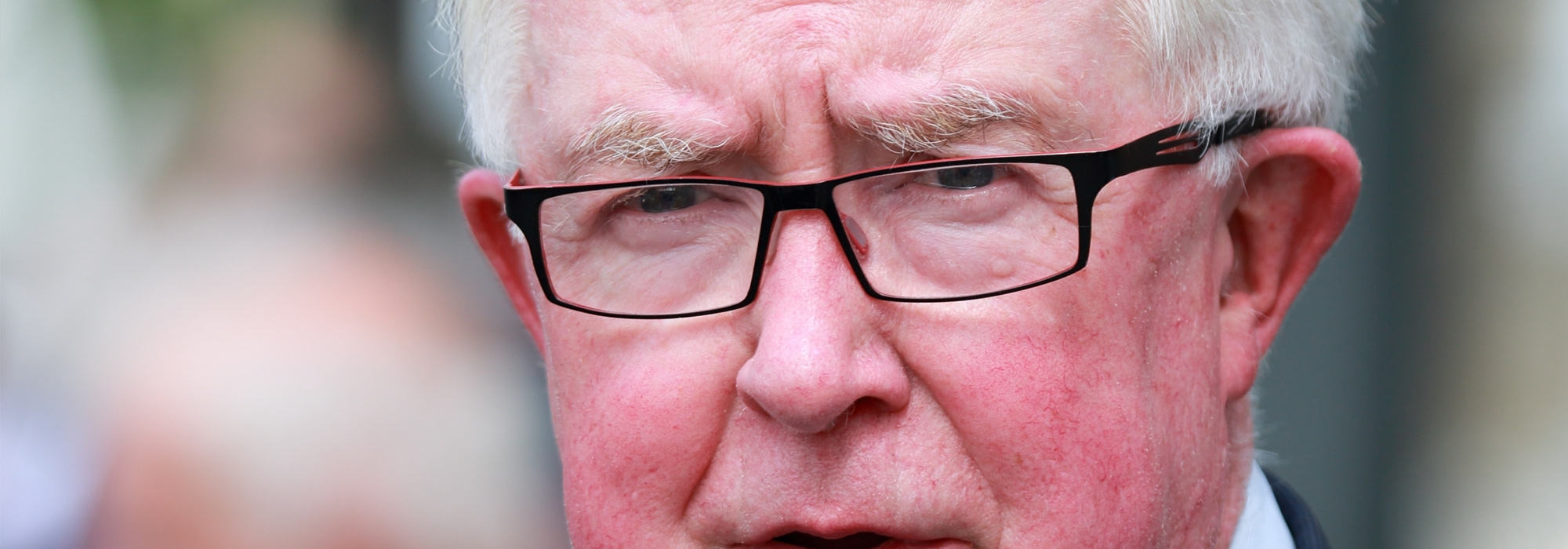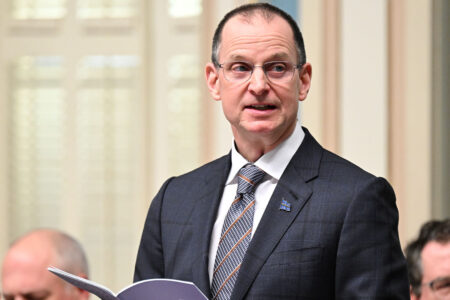
My older brother’s enthusiasm for Tommy Douglas’ victory in Saskatchewan in 1944 helped make a CCFer of me. He subsequently moved to the right, at first almost imperceptibly but then rapidly, until now, with the Alliance in trouble, he finds little to his taste on the Canadian political scene.
Recently I said something favourable to him about Joe Clark, and he responded by asking me “How does a Red Tory differ from a Liberal?” He said he’d asked a lot of Red Tories that question, including a few close friends, and none of them had answered it satisfactorily.
I said I had no difficulty whatsoever in distinguishing the Liberals from the Red Tories. Tories, like social democrats, believe it is the function of politics to create a “good society.” The work of politics is therefore the task of defining, in response to current problems but in the light of long established principles, “the public good.” Liberals on the other hand are pragmatists who think a good idea is an idea that works and who believe that, generally speaking, principle, which they would call ideology, ought not to be allowed to get in the way.
Recently it was revealed that Quebec gets 50 per cent of all “event money” (whatever that is), distributed by the federal government, roughly 20 per cent more than its population would justify, but this was good policy the minister responsible said, because “it will keep the country together.” That’s pragmatic liberalism, as was Trudeau’s National Energy Policy, which was justified on the same sort of grounds, even though it was manifestly unfair to the West, which had the oil.
In 1988, the Liberals campaigned against free trade. By 1992 they had embraced it. In 1992 they were opposed to the GST and promised to abolish it. Once in office they retained it. What was startling about these reversals of policy—or broken promises as some might call them—was that they were abandoned without so much as a backward glance. In reality, all the Liberals ever promise to do is to govern pragmatically—by which they mean apply situational ethics to politics.
My brother’s reply to this was to say, “Yes, but in practice what’s the difference?” That’s the legitimate source for his angst and he could have asked the same question at any point on his political odyssey from left to right, since all political parties he passed on the way have abandoned principle to become pragmatists, hoping to emulate the Liberals’ success.
Alexa McDonough recently warned her party about “losing traditional NDP values” by adopting the agenda of the street radicals who had helped disrupt the trade meetings in Seattle, Quebec and Genoa. Her warning was useless of course since that refuge no longer exists, having been abandoned to the pragmatists who, with indecent haste in the late 1980s, deserted their social democratic principles in favour of a new look, despite the continued success of traditional social democratic parties elsewhere in the world.
The validity of democratic socialism, which has made it either the government or the opposition throughout Western Europe, is the critical insight that democracy, including the electoral process, is undermined in capitalist economies by the power of the rich, an insight never more relevant than now. The guiding principle of social democrats in office has therefore been to pursue policies which will democratize the political process to the point where a person’s political influence does not depend on his or her wealth or position in society. To avoid rule by the rabble (or by referendum) social democrats believe in the need to educate, indeed to cultivate the masses to prepare them for their duties and privileges as citizens. In other words, if the working classes were to understand and support the hard choices governance requires, they had to be instructed in the responsibilities of power. In his 15 years of power in Saskatchewan, Tommy Douglas never ran a deficit. He told me once that only the federal government should be permitted to run a deficit since only it had the powers to manage the money supply.
Tories of whatever shade believe that the personal character of political leaders who are guided by the principles of justice (the law) and freedom (man’s inalienable right) are the best guarantee of good government, and that government that interferes too much in private decision-making corrupts both public life and private enterprise.
What has happened in Canada since the mid1980s is the abandonment by the NDP, the Progressive Conservative Party and the Reform Party of their own best traditions in favour of an approach which they thought would get them elected.
Reform began not so much as a party of principle, but as the party of a man of principle, if also a man with ideas which were difficult to reconcile—for instance, enthusiastic support for the business agenda (whatever that happened to be) with a commitment to ensure democratic control of the party through referendums and recalls (no matter what policy emerged from such a process).
With the leadership victory of Audrey McLaughlin and the election of Bob Rae in Ontario, the NDP embraced the pragmatic radicalism of the American left, which takes the form of promising redress to every group that feels it has a grievance. Rae spent his time in office in a desperate effort to satisfy the various groups in his coalition, each of which claimed to speak for a clientele deserving priority. Not surprisingly, this destroyed the party since each group was, by definition, more committed to its own agenda (that is, the pragmatic idea that worked for them) than the interests of the party. Indeed it quickly became impossible to define either the party’s policies or its interests— beyond getting re-elected. Pragmatism, the kind of pragmatism the Liberals believe in and have practised for years, had taken over the NDP, thereby eliminating the reason it existed.
Brian Mulroney’s coalition looked very stable compared to Bob Rae’s but it turned out to be even more fractious, splitting into three parties, the Bloc Québécois, the PCs and the Alliance (by way of Reform). Tory principles that had created Canada and protected it from any takeover by the US (see George Grant’s Lament For a Nation) were jettisoned in favour of a trade initiative which pleased big business and those provinces, particularly Quebec, that were eager for one reason or another to sell out the principles on which the country was founded.
In an effort to add an interest group that Mulroney had not managed to corral, namely women, the Conservative leadership was then handed to Kim Campbell. Though she failed dismally, it was her predecessor who had rendered the Tories irrelevant by making them even more pragmatic than the Liberals they briefly replaced.
Reform’s decline is due to a similar dilution of principle. Choosing Stockwell Day for his youth and his willingness to exploit his connection to the religious right was necessary, his supporters said, because Day might win Ontario, which Manning could not. Day’s leadership, like that of McLaughlin, Rae, Mulroney and Campbell, ensured that the Alliance was committed, in principle, to no principle, only to ad hoc polices subject to change as required.
American politics may seem very different from ours but the same principles are at work. Victory for the pragmatic centre excludes radicals and reformers of both right and left, who contribute to national politics only as spoilers, as Perot helped defeat Bush, and Nader, Gore. The pragmatic liberalism so deplored by the right because of its softness on social issues and by the left because of its economic commitment to capitalist values is thus the established political religion of North America. It is that, because both the framers of the American Constitution and the contemporary US business class fear and loathe government, accepting it only grudgingly as a keeper of the peace at home and abroad. The American economic elite has redefined “the public good” to be whatever business wants.
The Red Tories of Davis in Ontario, and Stanfield federally, and the social democracy of the old CCF, as well as the quixotic causes of individuals like Manning and Diefenbaker are in sad and perhaps permanent disarray. Only Joe Clark on the national scene seems capable of offering any resistance to the general drift.
A Clarity Bill designed to ensure an honest and informed vote on Quebec separatism converted Canada from a federation where final authority rested with the Government of Canada, into a confederation of provinces with each now lawfully allowed to secede. The mischief this will do in the future as provinces threaten to go unless Ottawa surrenders to their wishes is incalculable. Only Joe Clark spoke out against it in the face of opposition from most of his party, the press, and a public fixated on its benefits in the battle with Quebec’s separatists.
Similarly, he withstood intense pressure from the two most powerful Conservative provincial premiers, Klein in Alberta and Harris in Ontario and from other influential Conservatives, particularly businessmen who held the purse strings of the party, who wanted him to compromise with the Alliance. In a striking display of political courage, he even fought and won his riding in Alberta.
The Liberals, as practising pragmatists of long standing, offer no guidance whatsoever to the principles which might help us evolve the notion of “the public good” amidst the frenetic changes of the 21st century. They will as always simply go with the profitable flow—which is both their glory, and their disgrace.
My quarrel with the policy wonks at the National Post on the right and Naomi Klein and Judy Rebick on the left is that they are selling fool’s gold. Championing business, like championing the dispossessed, is not a policy, still less is it a principle. It is opportunism, the political equivalent of bleeding the patient to bring down a fever—out of fear that the true diagnosis might reveal terminal illness beyond the ministrations of market adjustments and the empty rhetoric of compassion.
It is conceivable that in seeing what I see in Joe Clark I am indulging in the ancient practice of declaring a crowned monarch “good,” or “wise,” or “brave,” or “kind” in the hope that he will be so. It was only after the political demise, or physical death, of such monarchs that they became “the unready,” “the weak,” “the simple” or “the terrible.” In the present state of Canadian politics, perceiving a politician as principled rather than opportunistic is of necessity an act of faith.
The need for this generation to define what we think the Canadian nation should try to be— an up-to-date definition of the public good—is urgent and would restore excitement and purpose to our political life. My assertion that the person most likely to do that is Joe Clark will be seen by some as a measure of our desperation. My point is that the bloodlines are right: Red Toryism represents progressivism without populism, principled compassion that is selective as well as responsive. It provides a healthy measure of scepticism about what politics and government can accomplish, and an awareness of how corrupting government largess can be to both public life and private enterprise. Joe, unlike the others we have named, marches to that drumbeat, whatever his personal limitations and the corroding effect of time.
Photo: Art Babych / Shutterstock







